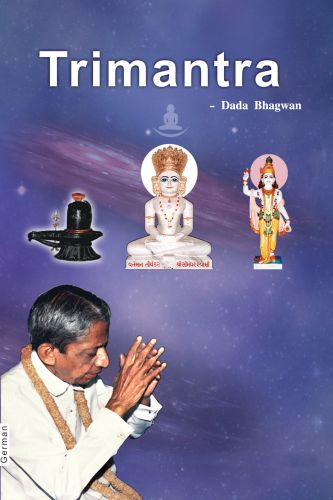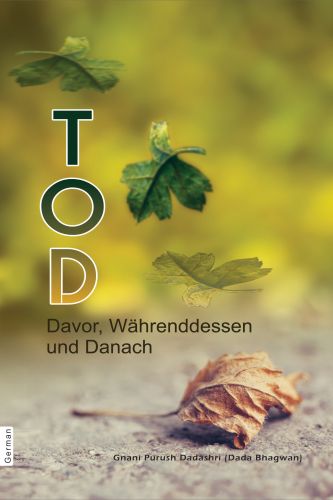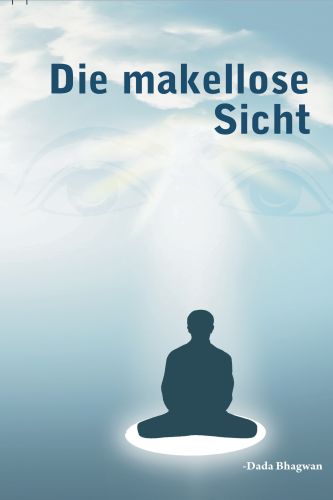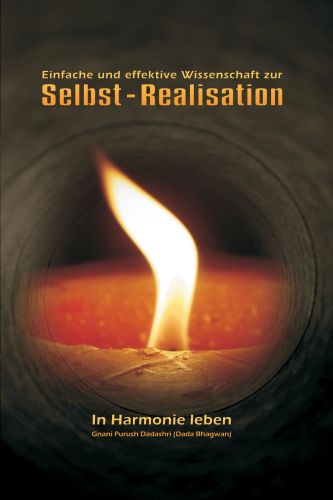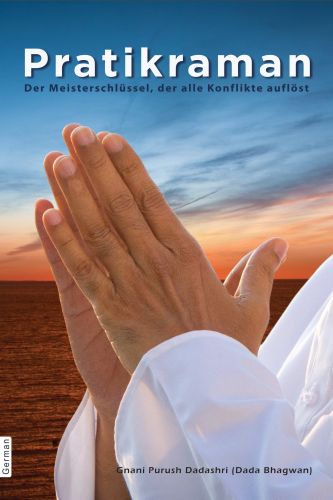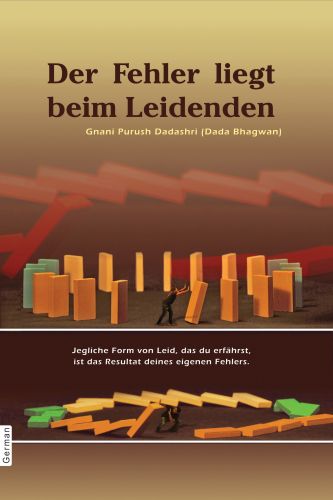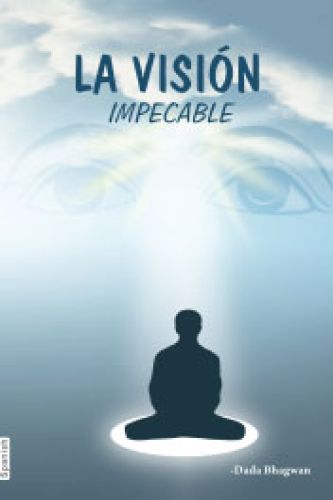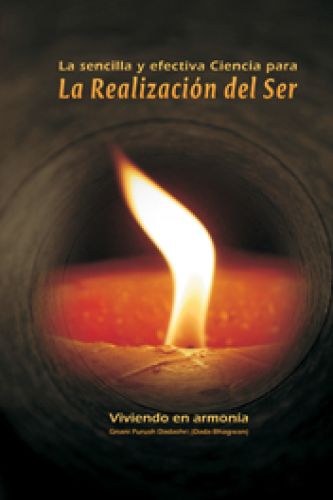Religion
- Agnosticism 2
- Antiquities & Archaeology 21
- Atheism 12
- Biblical Criticism & Interpretation 15
- Biblical Meditations 3
- Biblical Reference 1
- Biblical Studies 11
- Buddhism 8
- Christian Church 52
- Christian Education 5
- Christian Life 26
- Christianity 60
- Cults 2
- Devotional 6
- Eastern 2
- Education 4
- Eschatology 1
- Ethics 3
- General 60
- Gnosticism 1
- Hinduism 15
- History 28
- Holidays 10
- Inspirational 1
- Islam 8
- Judaism 3
- Leadership 1
- Meditations 3
- Monasticism 1
- Mysticism 11
- Philosophy 4
- Prayer 26
- Prayerbooks 5
- Religion & Science 12
- Sermons 54
- Spirituality 53
- Theism 2
- Theology 17
- Theosophy 15
Religion Books
Sort by:
by:
DadaBhagwan
Die Menschen streiten darüber, was in der Religion "meins" und "deins" ist. Um solche Streitigkeiten in Schach zu halten, gibt es das Trimantra. Wenn man die grundlegende Bedeutung des Trimantras (glückverheißendes Gebet) versteht, wird man erkennen, dass es kein Mantra ist, das ausschließlich für eine bestimmte Religion, Sekte oder Abteilung einer Religion gilt. Die Ehrerbietung im...
more...
by:
DadaBhagwan
Warum spiegelt unser Verhalten die Religion und die religiösen Praktiken nicht wider, obwohl wir uns so sehr damit befassen? Bist du nicht auch frustriert und verwirrt darüber? Was ist der Grund dafür? Param Pujya Dadashri (Meister der spirituellen Wissenschaft) hat das Geheimnis hinter dieser Verwirrung geklärt. Er sagt, dass jedes Verhalten und jede Verhaltensweise ein Ergebnis der Ursachen aus...
more...
by:
DadaBhagwan
In dem Buch "Tod - Davor, Währenddessen und Danach" spricht Param Pujya Dada Bhagwan uralte, unbeantwortete Fragen zu Tod und Sterben an. Param Pujya Dadashri bietet tiefgründige Antworten aufFragen wie: "Was ist der Tod?". "Was sind die Stadien des Sterbens und die Zeichen des Todes?". "Was passiert, wenn du stirbst?". "Gibt es ein Leben nach dem Tod und kannst du...
more...
by:
DadaBhagwan
Im Laufe des Lebens werden viele Menschen durch Umstände verwirrt, die außerhalb ihrer Kontrolle liegen - sowohl ihre eigenen, als auch die der anderen. Während der Untersuchung der Prinzipienvon Karma mag sich jemand immer noch fragen: "Warum passieren guten Menschen schlechte Dinge?" Im Buch "Die Wissenschaft von Karma" erklärt Param Pujya Dada Bhagwan diepräzise Definition von...
more...
by:
DadaBhagwan
Diejenigen, die ein spirituelles Leben führen wollen, werden sich natürlich fragen, wie sie in der Spiritualität Fortschritte machen, und wie sie spirituelle Werte leben können. Muss man auf irgendeine Art gut und böse, richtig und falsch transzendieren? Wann beginnt die wahre spirituelle Entwicklung wirklich? In der erleuchteten Definition ist die Grundlage eines spirituellen Lebens eine makellose...
more...
by:
DadaBhagwan
Dieses Leben ist ganz zerrüttet. Man weiß noch nicht einmal mehr, warum man dieses Leben lebt. Ein Leben ohne Ziel ist ohne Bedeutung. Man verdient Geld, genießt seine Mahlzeiten und sorgt sich den ganzen Tag lang. Wie kann dies das Ziel eines Lebens sein? Wie kann man verhindern, ein solch menschliches Leben nicht zu verschwenden? Nachdem man als Mensch geboren wurde, was sollte man tun, um das Ziel...
more...
by:
DadaBhagwan
Jeder Mensch begeht gegen seinen Willen Fehler. Menschen verfangen sich in ihren eigenen Fehlern und leiden dadurch unentwegt. Sie haben den aufrichtigen Wunsch, sich davon zu befreien, inneres Glück zu finden und sich zu ihrer Befreiung hin zu entwickeln. Die Tirthankars (vollständig Erleuchtete) und die Gnanis (Meister der spirituellen Wissenschaft) haben der Welt die einzige Waffe gegeben, um...
more...
by:
DadaBhagwan
Wenn ein Mensch leidet, geschieht das auf Grund seiner eigenen Fehler. Wenn ein Mensch glücklich ist, ist das die Belohnung für seine guten Taten. Aber das Gesetz der Welt beschuldigt den Nimit (der scheinbar ’Handelnde’ – derjenige, der das Leiden verursacht). Gottes Gesetz, das Wahre Gesetz, findet den wahren Schuldigen. Dieses Gesetz ist exakt und niemand kann es jemals ändern. Es gibt kein...
more...
by:
DadaBhagwan
Aquellos que buscan llevar una vida espiritual naturalmente se preguntarán cómo progresar en la espiritualidad y cómo vivir los valores espirituales. ¿Debe uno trascender de alguna manera lo bueno y lo malo, lo correcto y lo incorrecto? ¿Cuándo comienza realmente el desarrollo espiritual? Por definición iluminada, el fundamento de una vida espiritual es una cosmovisión impecable; y para lograr...
more...
by:
DadaBhagwan
¿ Qué es lo que buscan todos los seres (jivas) ? Lo que quieren es la felicidad, pero la felicidad no dura mucho tiempo. La gente va a bodas o al teatro para divertirse, pero la miseria vuelve otra vez. Cuando la infelicidad sigue a la felicidad ¿cómo podemos llamarla felicidad ? Es una felicidad del engaño. La felicidad debiera de ser permanente. El otro tipo de felicidad no es otra cosa que...
more...


